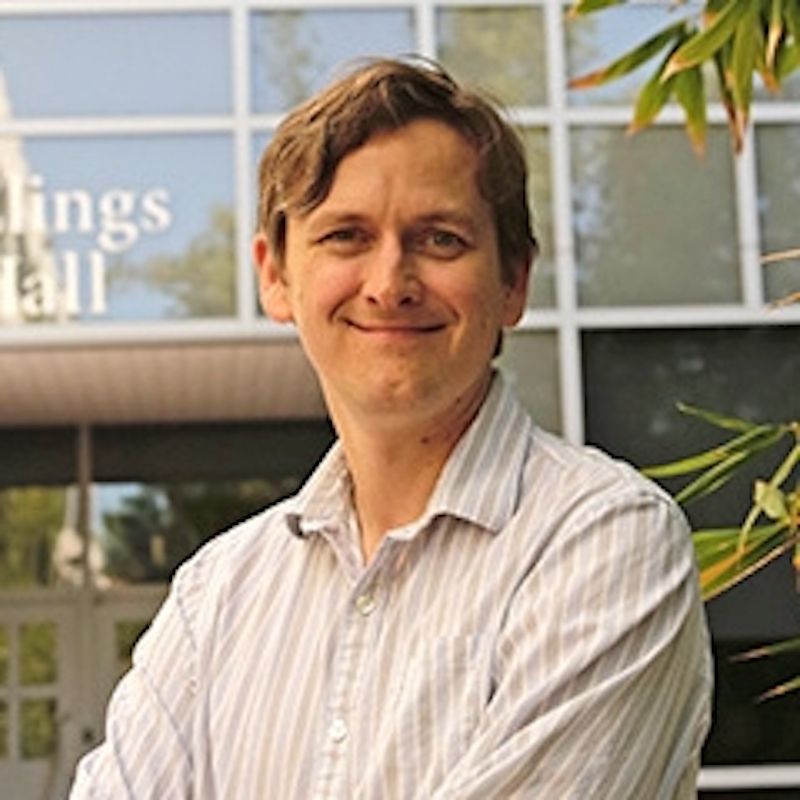Stephen Wilson: UC Santa Barbara: Quantum disorder in the magnetism of orbitally active AMO2 delafossites (A=alkali metal, M=metal)

Seminar
2:00 pm - 3:00 pm
Speaker
Stephen Wilson
Professor of Materials
UC Santa Barbara
Bio
Professor Stephen Wilson joined UCSB from the Physics faculty at Boston College and immediately became part of the CNSI community. He is a an Assistant Professor in the Materials Department and affiliate faculty at the Materials Research Lab, with a research focus on condensed-matter physical properties of matter such as magnetoelectronic and superconductive phenomena emergence. In 2015, he was named a Hellman Fellow and was also awarded a $1 million Keck Foundation grant to be used in the development of new instrumentation for bulk crystal growth. In 2019, he became the Co-Director of the NSF UCSB Quantum Foundry, an inaugural $25 million project funded under the NSF's Q-AMASE-i initiative as a next generation materials foundry that develops materials and interfaces hosting the coherent quantum states needed to power the coming age of quantum-based electronics.
Abstract
Magnetic states defined by intrinsic quantum disorder are a long-standing fascination in condensed matter physics due to their potential to harbor unique, nonlocal forms of order and emergent symmetries. Various types of quantum spin liquid states are predicted to arise in geometrically frustrated magnets when decorated with quantum spins, and there has been a recent resurgence in identifying these states in canonical setting of triangular lattice antiferromagnets. Specifically, for moments whose spin state becomes entangled with the orbital degree of freedom, native spin liquid-like states arise, contrasting the expectation of conventional order in the spin-only quantum limit. Here I will present some of our recent work exploring quantum disorder within the magnetism of triangular lattice delafossite-like compounds of the form AMO2 (A=alkali ion, M=metal ion). When the M-site is chosen to host a spin-orbit entangled wavefunction with Jeff=1/2, highly unconventional magnetic ground states arise that lack long-range order or static moment freezing. I will present an overview of several materials that host this behavior and hopefully motivate future exploration of the fascinating magnetism that arises in these materials platforms.